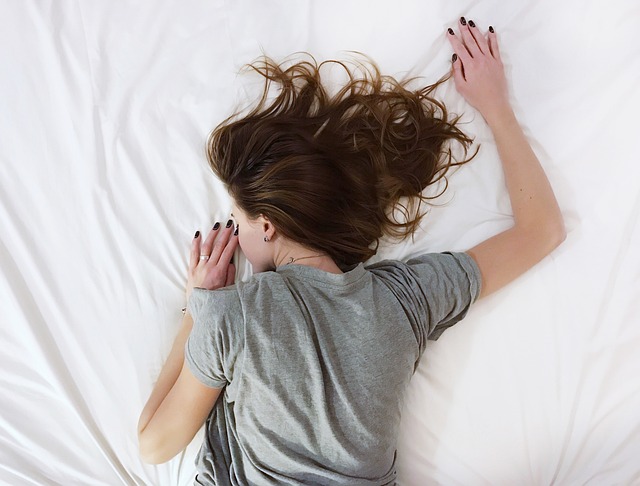Sleep is an important part of our general health and well-being. Poor sleep quality can cause a variety of health problems, including cognitive impairment, emotional instability, and lower productivity. In this post, we’ll go over evidence-based sleep hygiene habits that can help you enhance the quality of your sleep.
Creating a Conducive Sleep Environmen
- Temperature: Aim for a room temperature of around 65°F (18°C), as this is considered the most conducive to healthy, restful sleep.
- Noise: Use earplugs, a white noise machine, or a fan to block out disruptive noises.
- Light: Dim the lights after dark and avoid bright light from lamps and electronics before bed, as this can interfere with the release of melatonin, a hormone that helps regulate sleep.
- Comfort: Invest in a comfortable mattress and pillows that support your body’s natural alignment.
Establishing a Consistent Sleep Schedule
- Regularity: Stick to a consistent sleep schedule, going to bed and waking up at the same time every day, even on weekends.
- Sleep Duration: Ensure you are getting 7-8 hours of sleep each night, as this is the recommended amount for most adults.
- Consistency: Maintaining a consistent sleep schedule can help train your body and brain to prepare for sleep, improving sleep quality.
Managing Electronic Device Usage Before Bedtime
- Blue Light Exposure: Limit the use of electronic devices before bed, as blue light from screens can interfere with the release of melatonin, making it harder to fall asleep.
- Screen Time: Use warm-light spectrum lightbulbs in the hours before bed, turn off extra lights, and dim lights a few hours before bed to reduce blue light exposure.
- Night Mode: Set your electronic devices to go into “night” mode after sunset, which reduces blue light exposure.
Adopting Relaxation Rituals to Promote Better Sleep
- Warm Bath or Shower: Take a warm bath or shower before bed, as the drop in body temperature as you cool down afterward may help make you feel sleepy.
- Gentle Stretches or Yoga: Try some gentle stretches or yoga to help your muscles relax and release tension.
- Meditation: Practice meditation before bed to help calm your mind and prepare for sleep.
Improving your sleep hygiene can greatly benefit your general health and well-being. Implementing the sleep hygiene methods outlined in this article will allow you to create a suitable sleep environment, develop a consistent sleep routine, manage electronic device usage before bedtime, and incorporate relaxation rituals to encourage better sleep. Remember, consistency is crucial, so follow these techniques on a regular basis for the best outcomes.



Pingback: What Is Healthy Living 10 Points? - Wellness Readers Digest
Pingback: 10 Ways to Keep Your Heart Healthy - Wellness Readers Digest
Pingback: Why People Spend So Much Time in the Bathroom Using Smartphones - Wellness Readers Digest
Pingback: Holistic Approaches to Managing Stress: Techniques and Lifestyle Changes - Wellness Readers Digest
Pingback: Gut-Brain Connection Treatment: How to Heal Your Second Brain for Better Health - Wellness Readers Digest
Pingback: Unlock Your Weight Loss Journey with These Practical Nutritionist Tips in 3 Months - Wellness Readers Digest
Pingback: Rare Condition Causes Constant Arousal and Multiple Orgasms: Woman's Story Raises Awareness for PGAD - Wellness Readers Digest
Pingback: Type 2 Diabetes: Common Questions and Expert Answers for Better Management - Wellness Readers Digest
Pingback: New Breath Analysis Technique Could Predict Alzheimer's Disease Before Symptoms Appear - Wellness Readers Digest
Pingback: How Specific Exercise Can Improve Sleep: A Complete Guide to Sleep-enhancing Routines - Wellness Readers Digest